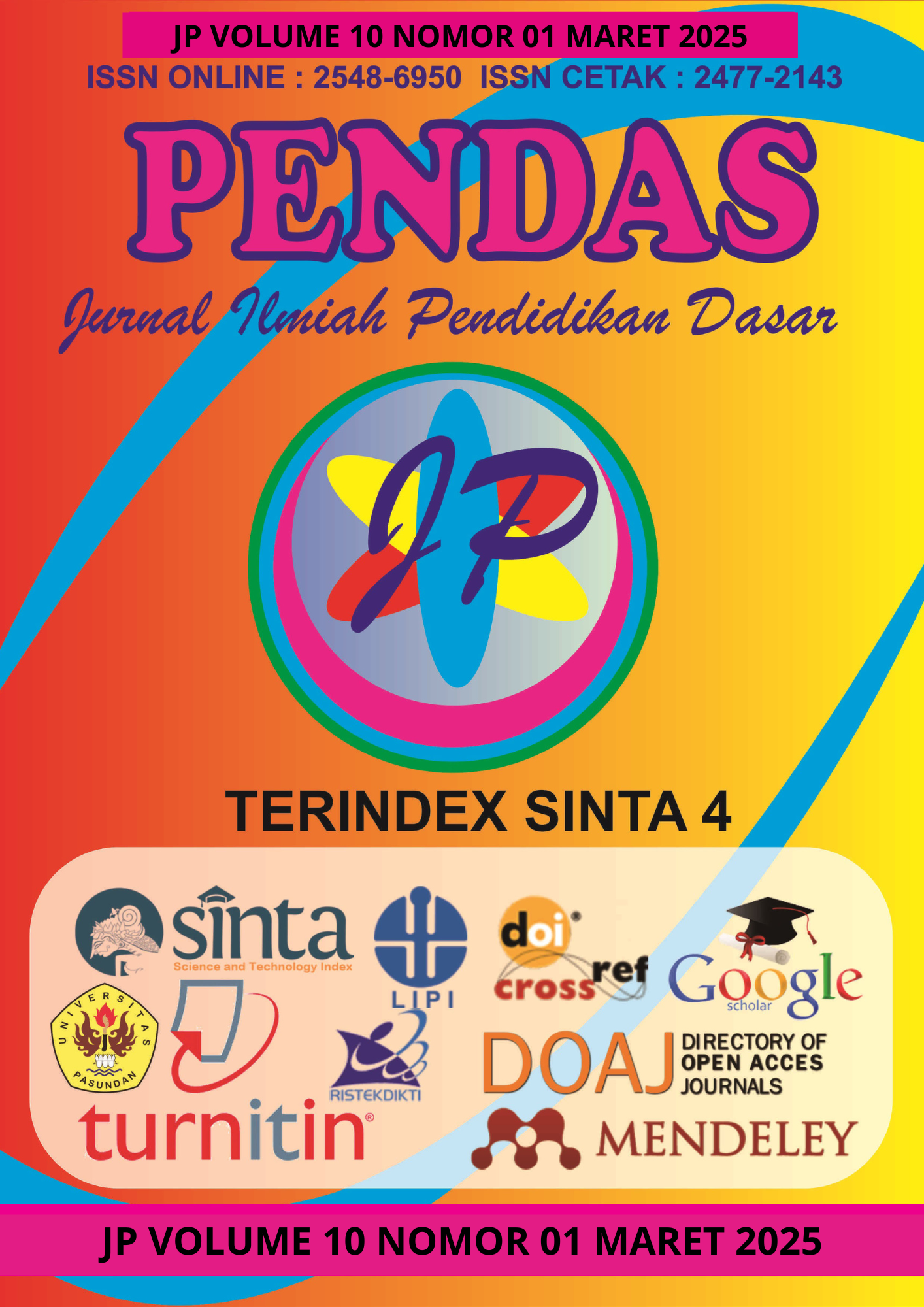PERAN PENDIDIKAN PANCASILA SEBAGAI PEMBENTUK KARAKTER PADA PESERTA DIDIK SEKOLAH DASAR
DOI:
https://doi.org/10.23969/jp.v10i01.22139Keywords:
pancasila values, pancasila education, character buildingAbstract
Education has a strategic role in shaping the character and personality of the younger generation as the nation's successors. In the Indonesian context, Pancasila education is one of the main pillars in realizing this goal. As a national ideology, Pancasila is not only the basis of the state, but also the values that are internalized in various aspects of life, including the field of education. And Pancasila education also has an important role in shaping the character of students, namely at the elementary school (SD) level. Pancasila education has great potential to shape the character of students in elementary schools. Through this education, it is hoped that Indonesia's young generation will not only be intellectually intelligent, but also have strong character, full of integrity, and can become good and responsible citizens. As the basis of the state and the nation's way of life, Pancasila contains noble values that can shape the attitudes and behavior of students in accordance with the moral values that apply in Indonesian society. Pancasila education also functions to increase students' understanding of the importance of living together in diversity and tolerance, which is very relevant in Indonesia's multicultural social context. This article aims to examine how Pancasila education is implemented in elementary schools in order to shape students' character based on Pancasila values, such as mutual cooperation, social justice, and respect for diversity. Using a qualitative approach, this research reveals that the integration of Pancasila values in the curriculum and extracurricular activities can increase understanding and application of positive attitudes that support character formation. Instilling these values not only equips students with knowledge, but also life skills that are useful for forming individuals with integrity, tolerance and responsibility. Therefore, Pancasila education in elementary schools has a strategic role in creating a young generation capable of maintaining national unity and integrity.
Downloads
References
Devita Cornelia, Pantriagung Mardya Kusuma, & Dian Permatasari Kusuma Dayu. (2022). Peran Pendidikan Nilai Pancasila Untuk Membangun Karakter Santun Siswa Sekolah Dasar. Prosiding Seminar Nasional Pendidikan Guru Sekolah Dasar, 2(1), 40–44.
https://doi.org/10.25134/prosidin gsemnaspgsd.v2i1.25
Indriani, M., Rahmadini, A., & Kurnianti, D. I. (2022). Jurnal PAJAR ( Pendidikan dan Pengajaran ) Volume 6 Nomor 6 November 2022 | ISSN Cetak : 2580 - 8435 | ISSN Online : 2614- 1337 DOI : http://dx.doi.org/10.33578/pjr.v6i 6.8843 STUDI LITERATUR : IMPLEMENTASI PENDIDIKAN KARAKTER SISWA SEKOLAH LITERATURE REV. 6(November), 1938–1949.
Lestari, S. O., & Kurnia, H. (2022). Peran Pendidikan Pancasila dalam pembentukan karakter. Jurnal Citizenship: Media Publikasi Pendidikan Pancasila Dan Kewarganegaraan, 5(1), 25. https://doi.org/10.12928/citizensh ip.v5i2.23179
Pratomo, I. F. C., Rifqia, M. W., & Sunaryati, T. (2023). Peran Guru Pendidikan Pancasila Dan Kebanggaan Dalam Penentuan Karakter Siswa Di Sekolah Dasar. Ilmiah Wahana Pendidikan, 9(25), 442–447. https://jurnal.peneliti.net/index.ph p/JIWP/article/view/5800/4803
Safitri, A. O., Dewi, D. A., & Furnamasari, Y. F. (2021). Peran Pendidikan Kewarganegaraan dalam Membentuk Pribadi yang Berkarakter Pada Anak Sekolah Dasar. Jurnal Basicedu, 5(6), 5328–5335. https://doi.org/10.31004/basicedu
.v5i6.1632
Downloads
Published
Issue
Section
License
Copyright (c) 2025 Pendas : Jurnal Ilmiah Pendidikan Dasar

This work is licensed under a Creative Commons Attribution 4.0 International License.














































